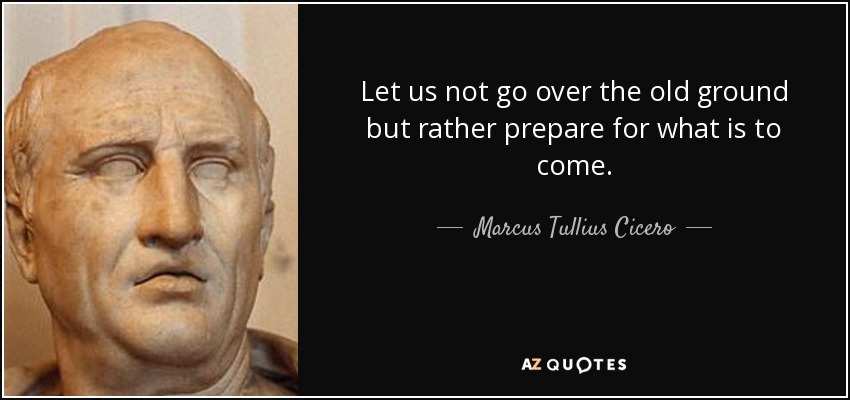Preparing The Ground - For Things You Can Not See
We plough the fields and scatter the good seed on the ground

Preparing The Ground - Setting The Scene
The phrase "preparing the ground" is a metaphor for making the necessary preparations to create the favourable conditions for something to happen or succeed.
By preparing the ground for a future event, course of action, initiative or development, you make it easier for it to happen.
The phrase has its origin in agriculture and refers to the process of preparing the soil before planting crops.
In European culture this was celebrated in the lines of a well known Christian hymn written by
German poet Matthias Claudius
in 1782 and popularised as a hymn of thanksgiving at harvest festivals:
"We plough the fields and scatter the good seed on the ground, but it is fed and watered by God's almighty hand..."
In modern life the phrase has transcended its agricultural roots and is applied in a wide range of contexts. Here are a few random examples:
Business
Making necessary arrangements or laying the groundwork for a project or initiative to be successful: "The marketing team spent months preparing the ground for the new product launch by conducting market research and building hype."
Education
Creating an environment conducive to learning or setting the stage for a new teaching method or curriculum: "The teacher prepared the ground for the new lesson by introducing the key concepts and providing background information."
Personal Development
Taking steps to ensure personal readiness for a new challenge or opportunity, for example: "She prepared the ground for her career change by taking relevant courses and networking with industry professionals."
Politics
Setting the stage for a policy change or political initiative by garnering support and addressing potential obstacles: "The campaign team worked hard to prepare the ground for the candidate's policy proposals by engaging with community leaders and stakeholders."
In this article we are going to look beyond the obvious meaning and application of preparing the ground and consider some additional factors which may have far reaching ramifications for how you live and the quality of your experiences.
But first we need to review and summarise the key steps in preparing the ground.
Preparing The Ground - Key Steps
It may be a cliche but there is truth in the old saying:"if you fail to prepare, you prepare to fail".
There is the story of two farmers in the US, many years ago, who grew crops right next to each other. They were experiencing the worst drought their area had seen in the last century and their crops were slowly dying.
Both farmers prayed for rain. After several weeks the rains did come and it rained non-stop for 3 days and nights. Their crops were saved, or so they thought...
A few weeks later it was obvious that one farmer's crops grew and the other one's crops died. Why?
Although they both prayed for rain, only one farmer prepared his crops for the rain to come - before it actually ever came.
Here are the 3 key steps that will apply in all situations and contexts where there is a need for preparing the ground:
[1] Understanding the current state of the ground.
The first essential step is to identify and gain a thorough understanding of the existing conditions, strengths, and weaknesses of the ground into which you will be planting your seeds. This involves gathering the relevant information and data to inform the preparation process.
For example: In gardening, this involves testing the soil to determine its pH and
nutrient content. In business, it might involve market research to
understand customer needs and competitive landscape, or a stakeholder analysis of the key people involved in securing the outcome you are seeking.
[2] Creating favourable conditions by removing obstacles
This step is about removing any barriers or impediments that could hinder progress.
This can be to do with tangibles such as physical resources - or a lack of them - and it can also be about intangibles such as information, knowledge, skills and attitudes.
For example: Clear weeds and debris from a garden plot. In a project, remove bureaucratic red tape and streamline processes.
[3] Establishing a strong foundation
[a] Regular monitoring of progress is important together with adjustments as needed. This requires flexibility and willingness to adapt based on feedback and changing conditions.
For example: Check the garden regularly for pests or nutrient deficiencies and adjust care routines accordingly. In a project, review progress periodically and make necessary changes.
[b] Maintaining and nurturing to provide ongoing support and maintenance is essential to ensure long-term success.
Sustainability is also key to a strong foundation and requires you to address potential future challenges.
For example: Regularly water, weed, and fertilize the garden. In a business, provide continuous training and additional resources and support materials to staff.
The bigger picture
OK so far we have discussed the basic, conventional, "business as usual" approach to preparing the ground. But there is far more to this if you are willing and prepared to take this to the next level.
Let's start by taking a look at the bigger picture. The business as usual approach tends to focus on tangible things, things you can see, but these basic principles for preparing the ground can also be applied to things you can not see.
Preparing The Ground - For Things You Can Not See

If you subscribe to the view that we live in a random universe where everything that happens is the product of random chance, or if you take the view that everything is fate and pre-ordained, in either or both of these perspectives there is limited scope for exercising personal choice and seeing your preferred outcome produce the results you hope for.
In my view there is a position somewhere between these two extremes where the choices you make, and the actions you do or do not take, can have an effect on the outcomes that you experience.
It is also my view that there are several fundamental truths at play here.
- You live in the moment. The action takes place now and nowhere else.
- What matters is not so much to do with the content of what happens in that moment but the quality of your response to the events and outcomes that occur in that moment. You have a choice.
- How you choose to respond in the moment will very largely be dictated by your conditioning - your upbringing and societal conditioning, your hard-wired instinctive conditioning and all of this is counter-balanced by whatever conscious conditioning you have undertaken in the form of spiritual, psychological and emotional training and practices.
- There are always consequences that arise as a result of your actions. Buddhists call this karma. On this site we refer to this as the law of response and outcome.
To succeed in making the right choices you need to be able to recognise the full spectrum of possible responses and consistently choose the right one.
You need to do the right things, moment by moment, day by day, persistently following through with them in a consistent way.
This is what is meant by preparing the ground for things you can not see, things such as how to:
- Thrive in unforeseen chaos, disorder and disaster.
- Position yourself to identify and exploit unseen opportunities.
- Stand in the gap between the reality you experience now and a future reality you may aspire to.
- Play the long game.
I am now going to give you a brief overview of each of these situations together with access to extensive resources for preparing the ground in each of these scenarios.
[1] Preparing the ground for chaos and disorder

Nobody has the perfect life. This is how things really are. This is the nature of things.
We all struggle and strive to attain health, wealth and personal happiness. Yet these three big areas: our health, our wealth and our relationships are where we all get hung out to dry – sooner or later.
It is as though there is an inbuilt design flaw that ensures that we all suffer at some point - one way or another. Chaos, disorder and decay is the natural order of things.
Nassim Taleb has created a term Antifragile to represent things that benefit from disorder.
Fragile things are harmed by disorder. For example, a bone china tea cup and saucer are fragile. If you accidentally drop them on the
floor, they will break. To protect such fragile crockery, it is handled with care.
Robust and resilient things, such as objects made of steel, are commonly regarded as the opposite of fragile. But, strictly speaking, being unaffected by disorder is not the opposite of being harmed by disorder.
There is not a word that means the "opposite of fragility" thus Taleb created the term antifragile, which is defined as things that benefit from disorder.
Antifragility is the quality of something that gets better, or thrives, in the presence of disorder.
Antifragility has a singular property of allowing us to deal with the unknown, to do things without understanding them - and do them well.
Resources for preparing the ground for chaos and disorder:
Antifragile - How To Benefit From Disorder
[2] Preparing the ground to identify and exploit unseen opportunities.

This section is especially relevant to anyone who is involved in business.
To understand how to benefit from unseen opportunities we need to start by understanding what they are and where we find them.
But to be able to realise the benefits that can be derived from these opportunities, it does require a different way of thinking.
I have written a detailed and comprehensive article that explains all this and provides extensive resources and further related articles:
How To Benefit From The Unseen Margins - 5 Key Tips For Success
You will see that some of the illustrations and quotes I have used in the first section are heavily business oriented.
This is partly because much of the literature on this subject has come from the business world and partly because I am a businessman and that is my world!
I have broadened the scope as the article progresses to explore how to benefit from the unseen hidden margins in any area of life and to provide real life illustrations of this in practice.
This is a big subject, but the material covered is important because these unseen opportunities contain hidden value that can have a very dramatic impact on your health, wealth and overall well-being.
[3] Preparing the ground to stand in the gap between the present reality and a future reality you aspire to.

This is about a transitional stage where we can find yourself standing in the gap between a present reality - the way things are - and a future where you know what they could be.
This is about living in, and being a part of, a transformation. It is not external to you it is within you. You are the process.
This gap can never be fully closed because the envisioned reality is always an aspiration.
The gap is where the action is.
Only the bravest, the most committed, and the most authentic person can stand in the gap.
This short piece contains links to many resources to help you in preparing the ground to stand in the gap:
Standing In The Gap - Living Beyond Reality
[4] Preparing the ground to play the long game.

The long game describes an approach to any area of life that sacrifices short term gains for long-term wins.
It is about having a long term goal and taking the necessary steps now to set yourself up for long term success.
- If you play the long game you delay gratification now to get more later, you stop focusing on the short term and you think ahead.
- To do this requires you to ask hard questions and to consider the second-order consequences of your decisions and the key question you will be asking is: "...and then what?"
- The immediate effect of this is that you will be less efficient in the short term in order to be much more effective in the long term.
This can be hard and it means being prepared to make a lot of mistakes and errors and even on occasions being prepared to look stupid.
Here are 7 proven strategies, with resources, for preparing the ground to play the long game:
The Long Game - Delay Gains Now To Get More Later
Playing the long game is doubly difficult when you are traveling on a road less traveled that is not well defined, where the milestones and metrics are not known when you start out on this journey.
Here is an indepth, comprehensive and unique guide to preparing the ground to deal with the challenges of playing the long game:
The Challenges Of The Road Less Traveled - When Playing The Long Game

Next Article:
Easing The Weight Of Expectation
Further Recommended Reading:
The Power Of Patience - Why You Need The World's Toughest Quality
Finding Signal In The Noise - How To Avoid The Noise Bottleneck
Why Understanding Ergodicity Is Critical To Your Long Term Survival
The Fat Tail Fractal Factor - Give Your Effectiveness A Quantum Leap
How Positive Asymmetry Can Transform Your Life
The Metagame Approach to Life - How To Achieve Your Biggest Objectives
How To Be A Winner - The Incredible Benefits Of Selective Attention
Return from: "Preparing The Ground" to:
Inner Mastery For Outer Impact or Walking The Talk
LATEST ARTICLES
The Inner Weight of Shame - Sustained By Attentional Fixation
 A Mind That Is Continuously Engaged In Self-Surveillance. Shame is one of the heaviest inner burdens a human being can carry. It does not announce itself loudly or demand attention through drama. Inst…
A Mind That Is Continuously Engaged In Self-Surveillance. Shame is one of the heaviest inner burdens a human being can carry. It does not announce itself loudly or demand attention through drama. Inst…Does Prayer Work? The Psychology of Prayer, Meditation and Outcomes
 Reality Is A Complex System Of Countless Interactions - Including Yours. So does prayer work? The problem is that the question itself is usually framed in a way that guarantees confusion. We tend to a…
Reality Is A Complex System Of Countless Interactions - Including Yours. So does prayer work? The problem is that the question itself is usually framed in a way that guarantees confusion. We tend to a…Living in Survival Mode Without Surrendering Mental Authority
Living in Survival Mode Without Surrendering Mental Authority
 Clear Thinking When You’re Just Trying to Stay Afloat. Many people today are overwhelmed because they are living in survival mode - not temporarily, but as a persistent condition of life. For many, th…
Clear Thinking When You’re Just Trying to Stay Afloat. Many people today are overwhelmed because they are living in survival mode - not temporarily, but as a persistent condition of life. For many, th…Manifestation Without Magic: A Practical Model
 Manifestation without magic is not a softer or more intellectual version of popular manifestation culture. It is a different model altogether. Popular manifestation teachings tend to frame reality as…
Manifestation without magic is not a softer or more intellectual version of popular manifestation culture. It is a different model altogether. Popular manifestation teachings tend to frame reality as…Staying Committed When You Can't See Progress - The Psychology of Grit
 Uncertainty Is Not The Absence Of Progress, Only The Absence Of Reassurance. One of the most destabilising experiences in modern life is not failure, but uncertainty and staying committed when you can…
Uncertainty Is Not The Absence Of Progress, Only The Absence Of Reassurance. One of the most destabilising experiences in modern life is not failure, but uncertainty and staying committed when you can…The Battle For Your Mind - How To Win Inner Freedom In A Digital Age Of Distraction
 From External Events to Inner Events. We often think of “events” as things that happen out there: the traffic jam, the rude comment, the delayed email reply. But what truly shapes our experience is wh…
From External Events to Inner Events. We often think of “events” as things that happen out there: the traffic jam, the rude comment, the delayed email reply. But what truly shapes our experience is wh…How to See Your Thoughts Without Becoming the Story
 A Practical Guide to Thought-Awareness. You can spend your life inside the stories of your mind without ever learning how to see your thoughts clearly and objectively. Most of the stuff we tell oursel…
A Practical Guide to Thought-Awareness. You can spend your life inside the stories of your mind without ever learning how to see your thoughts clearly and objectively. Most of the stuff we tell oursel…The Collison Decision Matrix - A Simple Framework for Better Choices
 The Collison Decision Matrix Is A Practical Everyday Thinking Tool. Most of us spend a surprising amount of time worrying about decisions. From small ones such as what to wear, what to eat, what to te…
The Collison Decision Matrix Is A Practical Everyday Thinking Tool. Most of us spend a surprising amount of time worrying about decisions. From small ones such as what to wear, what to eat, what to te…The Power Of Asking The Right Question
 The Power Of Asking The Right Question Lies In The Quest For Insight. To experience the power of asking the right question you must develop the practice of asking questions. The best way to improve th…
The Power Of Asking The Right Question Lies In The Quest For Insight. To experience the power of asking the right question you must develop the practice of asking questions. The best way to improve th…Site Pathways
 Here is a site pathway to help new readers of Zen-Tools navigate the material on this site. Each pathway is based around one of the many key themes covered on this site and contain a 150 word introduc…
Here is a site pathway to help new readers of Zen-Tools navigate the material on this site. Each pathway is based around one of the many key themes covered on this site and contain a 150 word introduc…How To Live With Contradiction - Beyond Thought Let Stillness Speak
 A major impact on so many peoples' lives is the situational contradiction of unfilled realistic expectations. So where does all this leave us? Well here we are, with mental equipment that is more lim…
A major impact on so many peoples' lives is the situational contradiction of unfilled realistic expectations. So where does all this leave us? Well here we are, with mental equipment that is more lim…
